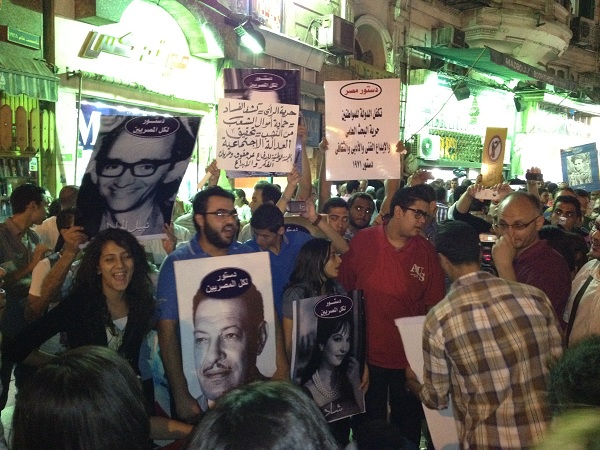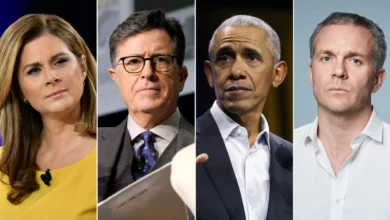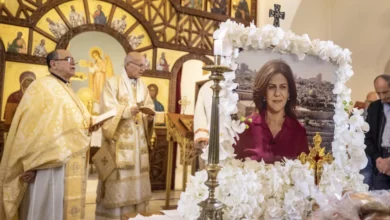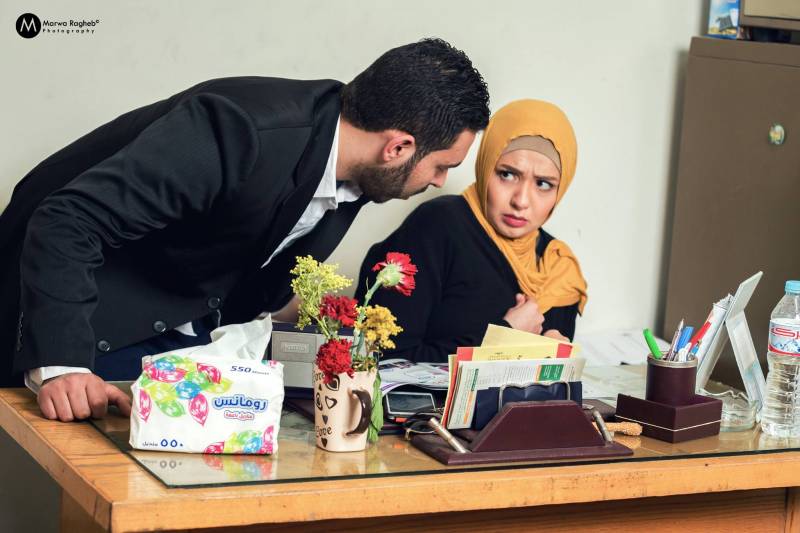
A number of journalists, writers, actors and political figures held a sit-in on Wednesday denouncing the recent constraints put on journalists and the detention of Islam Afifi, the editor-in-chief of the independent Al-Dostour newspaper, who is charged with insulting the president in the press.
Taking place the day before the planned protests against President Morsy and the Brotherhood, the sit-in might be seen to be affiliated with the 24 August protests. But attendees disagreed.
This sit-in aims to defend press and creative freedoms and has nothing to do with the protests on 24 August,” said Khaled Salah, editor-in-chief of the privately owned newspaper Al-Youm7. “I believe whoever came to power through the democratic process and the ballot box should be removed the same way.”
Journalistic figures such as Adel Hamouda, Abdel Halim Qandil, Saad Hagras, Khaled Salah and many more participated, as well as politician and former MP Amr Hamzawy who appeared with his wife Basma, the actor.
The sit-in that took place at Talaat Harb square was planned over Facebook on an event page called,“No to suppress freedoms and mute voices.” The page was administrated by journalists Rania Ibrahim from Al-Masry Al-Youm and Sayed Mahmoud, from the state-owned Al-Ahram.
“It all started when a group of intellectuals had a meeting to discuss the recent shuffling of the chief editors, especially when Abla al-Reweny [of the state-owned al-Akhbar al-Youm newspaper] was substituted with another chief editor,” Sayed Mahmoud said.
“But we came to believe it’s not about individuals, it’s about a concept … the constitution needs to be written in a way that serves press freedom,” Mahmoud added.
Demonstrators sang traditional songs and held pictures of leading figures in arts and culture aloft, saying that creativity and freedom of opinion should never die. The new constitution that is currently being drafted was the main focus of the sit-in. Demonstrators believed that this will be the only guarantee of press and creative freedom.
“We are not asking for our freedom back, because nobody can snatch it in the first place,” said Hamdy al-Wazeer, an actor participating in the protest. “until now, art is not as directly constrained as the press.”
Afifi, who has been charged with spreading false information, insulting President Morsy, and disrupting the country’s peace, was temporarily detained for less than a day before Morsy made his first use of legislative authority to abolish preventive custody for press-related crimes.
“The president intervened to let Afifi out, but what we request is way more than that,” Salah added.
Some coalitions and political parties joined the demonstration, but people represented themselves more than they represented their coalition. Among these were the National Socialist Coalition, Defending Revolution Coalition, Azharists for a Civil State Coalition, Al Tagammu, and the newly formed Constitution Party.
“The brothers were oppressed and detained, they know what oppression feels like, I wonder how they can repeat what they suffered from,” said Mahitab al-Gilany, a member of Defending Revolution Coalition and a participant in the demonstration.
Mahmoud explained that the Journalists Syndicate was not involved in organizing the protest, mainly because the protest wasn’t exclusively for journalists but rather targeted at anyone associated with the arts and culture.
“The Journalists Syndicate’s reaction wasn’t what we were hoping for,” said Salah. He argued that the syndicate should have supported the call for a demonstration and held an open discussion, “instead of leaving journalists to ask for their own rights on the streets.”
Participants in the event largely expressed a common vision, holding discussions with any passers-by who expressed opposition. “I believe our protest was a success and it proved that intellectuals don’t have a passive attitude,” said Mahmoud.




